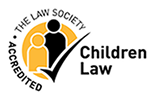And how companies can be held responsible for employee actions.
The Supreme Court has ruled that supermarket Morrisons were liable to pay compensation to a customer who was assaulted by one of their employees.
Amjid Khan worked in a Morrisons petrol station in Birmingham. Ahmed Mohamud asked Mr Khan whether he could print out some documents for him that he had on a memory stick. Mr Khan was verbally abusive to Mr Mohamud, and then followed him to his car where he attacked him, including kicking him whilst he was curled up on the ground.
Morrisons sacked Mr Khan and offered to pay some compensation, but Mr Mohamud took the matter to court in order that the court could make a ruling on the extent to which an employer could be held responsible for the actions of their employee.
It has long been established that employers can be held to blame for the acts of their workers. Companies in themselves are legal entities, and cannot do anything unless a person acts in their name. Clearly if a company could say, “It wasn’t me, it was my employee” every time, no company could ever be responsible for anything. The idea that an employer is responsible for what its employees do is known as ‘vicarious liability’.
But at the other extreme, an employer can’t be held to blame for everything their employees do. If someone goes out on a Saturday night and gets involved in a fight, their employer could hardly be held to blame for that.
Past court rulings have therefore focused on the connection between the employee’s act and their job. Several cases have dealt with nightclub doormen. For example, where a doorman got into an argument with some customers and punched one of them, the club was responsible (even though in that case the doorman was employed by a separate security company). In another case a doorman was chased away from the club by a group of people, only to return later armed with a knife and stabbed one of the group. The club was found liable because the manager knew the doorman was a violent man, and whilst he was not authorised to stab customers, the incident arose out of the job he was hired to do.
The law had previously been that for an employer to be liable for an employee’s assault, it must have arisen out of the employee’s actual job. Carrying out an assault is obviously unlikely to be specifically authorised in someone’s job description, but if the employee was doing their job but just taking things too far (for example a store detective hitting a suspected shoplifter), the relationship between the assault and the employee’s work was close enough to justify making the employer responsible.
Cases involving sexual abuse in residential homes have extended the duty of employers. Sexual abuse is clearly no part of anyone’s job, and such cases would be defended by employers on the basis that the perpetrators were not simply taking their job too far, they were doing something completely unauthorised, for their own reasons, which was nothing to do with their work.
However, the courts have ruled that where the victims were in the care of the employer, there only needed to be some close connection between the relationship between employer and employee on the one hand, and and the acts of abuse on the other.
The case of Mr Mohamud seems to build on this. He was only Morrisons’ customer, so they would not have owed him the same level of duty to protect him as would a resident in a residential home or school, but nevertheless they owed him a duty of care. Mr Khan was not employed in a position where physical confrontation would be generally foreseeable, such as would be the case for a nightclub doorman, so it does not appear to have been a case where an assault was a particularly foreseeable escalation.
Nevertheless, the fact that there was some connection between Mr Khan’s job and Mr Mohamud’s relationship with Morrisons as their customer was deemed to be enough to fix Morrisons with the blame. Mr Khan was representing Morrisons when he carried out the attack, he was not doing it in his spare time.
Subscribe for Updates












